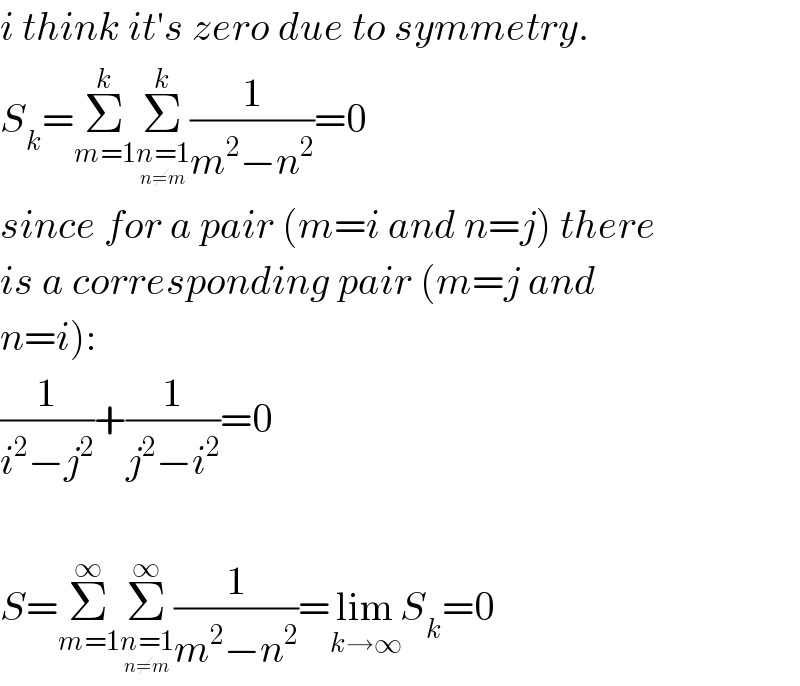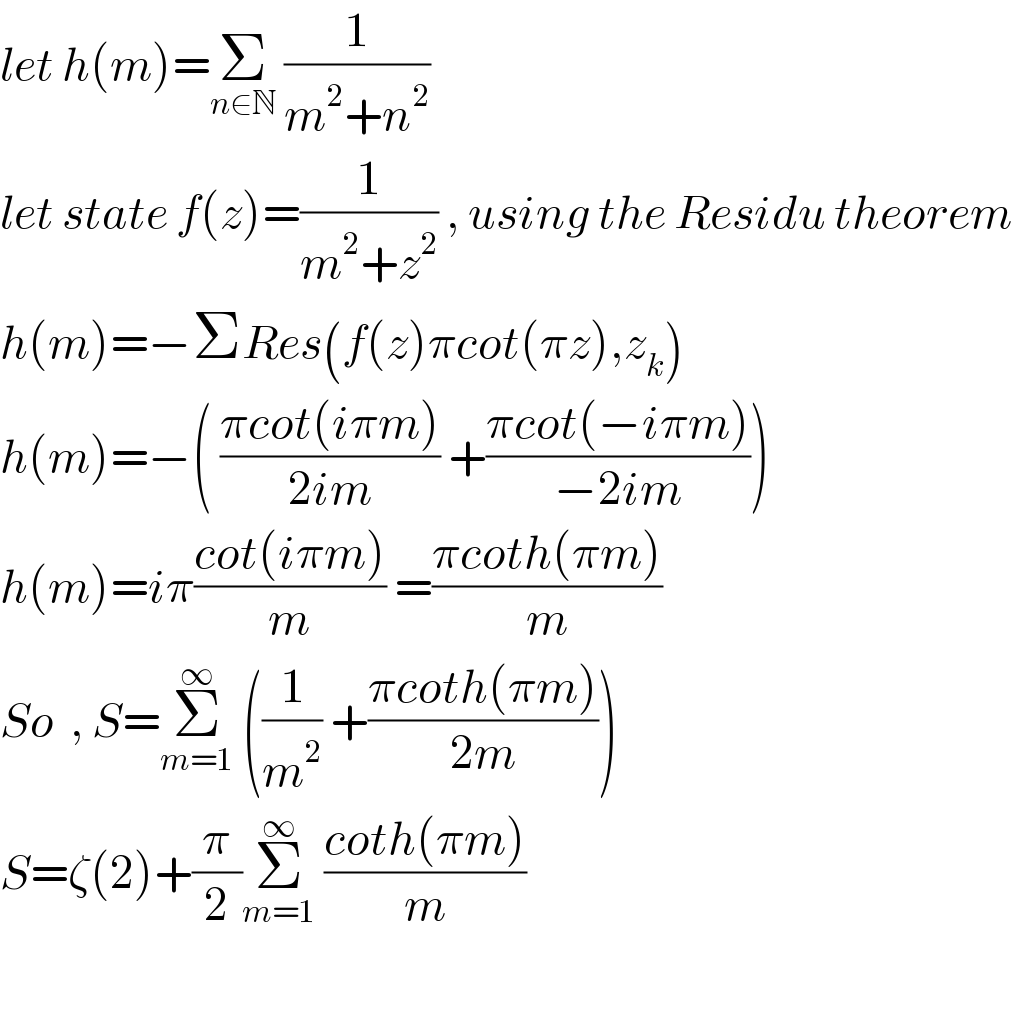
Question and Answers Forum
Question Number 80786 by M±th+et£s last updated on 06/Feb/20

Commented by mind is power last updated on 06/Feb/20

Commented by mr W last updated on 06/Feb/20

Commented by mr W last updated on 06/Feb/20

Commented by mathmax by abdo last updated on 06/Feb/20

Commented by ~blr237~ last updated on 07/Feb/20

Answered by ~blr237~ last updated on 07/Feb/20
![We have ∀ m≥2 Σ_(n=_(n≠m) 1) ^∞ (1/(m^2 −n^2 )) =− (3/(4m^2 )) (let prove) f(m)=Σ_(n=1 n≠m) ^∞ (1/(m^2 −n^2 )) . knowing (1/(m^2 −n^2 )) =−(1/(2m))((1/(n−m))−(1/(n+m))) f(m)= −(1/(2m)) [Σ_(n=1) ^(m−1) ((1/(n−m))−(1/(n+m)))+Σ_(n=m+1) ^∞ ((1/(n−m))−(1/(n+m)))] f(m)=(1/(2m))[ Σ_(p=m+1) ^(2m−1) (1/p) +Σ_(p=1) ^(m−1) (1/p)]−(1/(2m))[Σ_(p=1) ^∞ ((1/p)−(1/(p+2m)))] let show that g(m)=Σ_(p=1) ^∞ ((1/p)−(1/(p+m)))=Σ_(p=1) ^m (1/p) g(m)=Σ_(p=1) ^∞ (Σ_(k=0) ^(m−1) ((1/(p+k))−(1/(p+k+1)))) =Σ_(k=0) ^(m−1) (Σ_(p=1) ^∞ ((1/(k+p))−(1/(k+p+1)))) =Σ_(k=0) ^(m−1) (1/(k+1))=Σ_(k=1) ^m (1/k) So , f(m)=(1/(2m))(Σ_(p=1) ^(2m−1) (1/p) −(1/m))−(1/(2m))Σ_(p=1) ^(2m) (1/p) f(m)=−(1/(2m^2 )) −(1/(2m))×(1/(2m)) =−(3/(4m^2 )) Finally S=Σ_(m=1) ^∞ f(m)=−(3/4)ζ(2)=−(π^2 /8)](Q80826.png)
Commented by M±th+et£s last updated on 07/Feb/20

Commented by ~blr237~ last updated on 07/Feb/20

Commented by M±th+et£s last updated on 07/Feb/20

